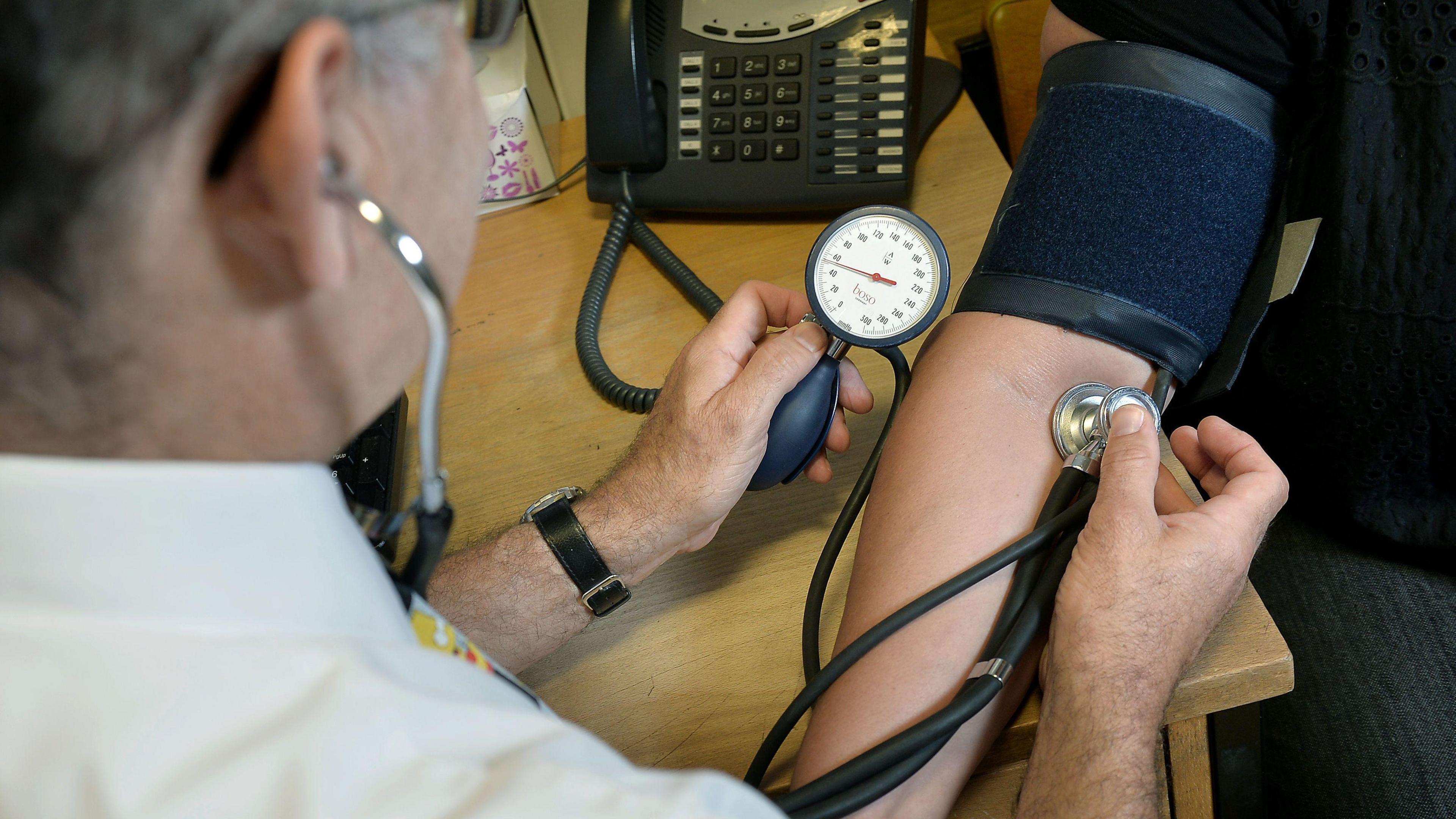Bacteria infection rise 'not linked to eating out'

Notifiable infection cases - many food borne - have risen over the past 12 months, new figures show
- Published
A public health authority has said there is no link between eating out and a rise in notifiable infection cases in parts of Teesside.
The diseases, which medical professionals are required to report to government health authorities, rose over the past year in Middlesbrough and Redcar and Cleveland by 96% and 82% respectively.
Figures in the health protection assurance report, external, produced on behalf of Public South Health Tees, show there were 306 cases in Middlesbrough in 2024/25, almost double the previous year.
Bacteria associated with contaminated food is suggested as the main driver cause but a spokesperson said there was "no evidence" to support that.
In Redcar and Cleveland, notifiable infection cases increased year-on-year from 169 to 308, the report said.
The most common source of infection is raw or undercooked poultry, but other meats, unpasteurised milk and contaminated shellfish can also spread the bacteria, which can also be transmitted from raw meat to other surfaces, utensils, or ready-to-eat foods in kitchens.
Other notifiable infections which rose slightly included 10 cases of giardia lamblia - a parasite that causes an intestinal infection and is found in contaminated water - and non-0157 E. coli, with five cases reported.
Four C's
Reported cases of salmonella, another bacteria spread in a similar way to campylobacter, increased from 19 to 21.
These so-called gastrointestinal infections trigger similar symptoms, including diarrhoea, stomach pains and cramps, vomiting and mild fever.
Dr Gauri Godbole, a deputy director at the UK Health Security Agency (UKHSA), said: "Washing hands thoroughly with soap and water, particularly after using the toilet or handling raw meat, before meals and after contact with animals or farms can prevent infections."
The UKHSA said people preparing food should follow the "four C's" in order to protect from potential food poisoning.
This meant cooking food correctly by following product information on time and temperature, chilling food below 5C to stop or significantly slow bacteria growth, cleaning food equipment and surfaces thoroughly and avoiding cross-contamination.
Fifteen businesses closed
The Local Democracy Reporting Service asked Public Health South Tees if the increases were linked to food premises such as takeaways and restaurants and their cleanliness, details on food hygiene inspections in both Middlesbrough and Redcar and Cleveland having been included in the same section of the report.
But it said unlike other infectious diseases, such as salmonella and cryptosporidium, people with campylobacter were not interviewed to determine the source of an infection due to it being a relatively common form of illness.
They were sent an information letter and asked to contact public health officials if they had concerns or were aware of others who had the infection, since this may mean a possible outbreak.
The same report said that in Middlesbrough in 2024/25 a total of 581 businesses were inspected to ensure compliance with food regulations with 446 (76%) receiving a five star rating.
Fifteen were subject to "enforced closure due to hygiene breaches".
The report said: "Most of the food businesses inspected are restaurants and takeaways, however there are a small number of manufacturers and approved food premises and these can involve more complex processes."
A council spokesman added: "High-risk premises are inspected more regularly than others and we take enforcement action whenever serious hygiene breaches are found."
In Redcar and Cleveland in the last 12 months some 566 food businesses were inspected with 549 (88%) receiving the highest possible five star rating.
No food premises in the borough were required to close.
Follow BBC Tees on X, external, Facebook, external, Nextdoor and Instagram, external.
Get in touch
Do you have a story suggestion for BBC Tees?